Night into Morning

Brief Synopsis
Cast & Crew
Fletcher Markle
Ray Milland
John Hodiak
Nancy Reagan
Lewis Stone
Jean Hagen
Film Details
Technical Specs

Synopsis
One morning, State College English professor Phillip Ainley happily anticipates accepting a new position at Yale University as he kisses his wife Anne goodbye. When he begins his lecture on Shakespeare, Phil's only concern is finding a sitter for his son Timmy while he and Anne see South Pacific that night. Moments after an explosion is heard in the distance, department secretary Katherine Mead, who is engaged to Phil's best friend, Tom Lawry, rushes in to tell him that the explosion was at his house. Phil runs home and learns that Anne and Timmy have died in a gas furnace explosion. At the funeral, a numb Phil feigns strength, but his stoicism worries Katherine, who is a war widow. Later, when alone, Phil goes to the top of the college's bell tower and contemplates jumping, but is interrupted by a caretaker. That night, Phil checks into a downtown hotel and spends the night drinking and thinking of suicide. The next day, he shocks his friends and students by showing up for class and picking up the discussion where it ended before the accident, on a morbid passge from Richard II . Phil's friends on the faculty want him to take time to recover from his loss, but even Tom's suggestion that they go together to a friend's cabin, will not sway Phil. That afternoon, as Phil and Katherine see Anne's parents, the Andersons, off on the train, Mrs. Anderson urges Phil to love again, but he dismisses her words. As the weeks pass, Phil's nightly drinking increases and Tom becomes concerned that the sympathetic Katherine is coddling him. One night, after finding a drunken Phil in the hotel bar, Tom tells his friend that he is becoming a "souse" and urges him to take the job at Yale. The next night, after Katherine finally convinces Phil to order headstones for Anne and Timmy, she worries that his superficial self-control is dangerous. Later, Tom gently tells Katherine that Phil must go through things on his own. The next morning, "Chuck" Hollander, a star athlete and favorite of Phil's, asks Katherine to see if he passed his final exam. Seeing her crestfallen face, Chuck explains that he studied hard and needs a passing grade to graduate and get a coaching job. At Chuck's request, Katherine speaks with Phil, but he refuses to reconsider the grade. Tom sees them talking and thinks that Katherine has gone back on her promise not to meddle in Phil's life. Realizing that Tom is misinterpreting things, Phil urges her to go after him. Tom admits that he has been jealous, and when she assures him that she truly loves him, they decide to marry that Saturday. That night, Chuck's girl friend, Dotty Phelps, goes to Phil's hotel to try to change his mind. In the bar, he drunkenly lectures that if she and Chuck do not get married, they cannot get hurt, then reveals that it is his wedding anniversary. Softening after seeing her sadness, Phil agrees to reconsider Chuck's grade if she can convince him to change it after reading the exam. Although Phil is too drunk to drive back to school, he refuses to let Dotty take the wheel and crashes into a store window. Although no one is hurt, Phil is arrested and thrown into the drunk tank. The next morning, Phil is convicted of drunk driving by a judge who believes in the maximum sentence of six months in jail and a $500 fine, but lets Phil off with probation and a stern lecture after Tom and English department head Dr. Horace Snyder speak on his behalf. Ashamed, Phil offers his resignation to Snyder, who will not accept it. After declining Tom's offer to come and stay with him, Phil gets cleaned up at the barbershop then goes to his bank and alters his will to leave everything to Katherine and Tom, instructing the banker that everything must be finalized that day. Phil next gives Timmy's bicycle to his best friend, then goes to Chuck's room and administers another exam, gently warning him not to flunk. After giving Chuck a passing grade, Phil goes to Tom and Katherine and tells them that he is leaving town, but does not say where he is going. When Phil leaves, Katherine tells Tom she is sure that Phil is about to kill himself. Tom then becomes angry and leaves, saying that her feelings for Phil are driving a wedge between them. Meanwhile, Phil returns to his hotel room, writes a suicide note and opens the window. As he is about to jump, Katherine arrives and interrupts him, explaining that she once felt the same way but stopped when she realized that her husband would want her to live. Finally recognizing that Anne and Timmy would have wanted the same, Phil breaks down, and Katherine closes the window. A short time later, Tom is surprised by a visit from Phil, who tells him what happened and assures him that Katherine loves only him. Tom then admits he was wrong, and insists that Phil stay with him for a while. At class the next day, Phil is back to his old self. After announcing that everyone passed, he thanks them for their help and sends them on their way.

Cast

Ray Milland

John Hodiak
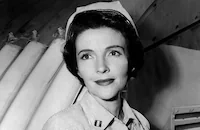
Nancy Reagan
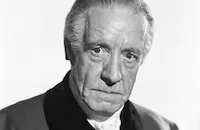
Lewis Stone
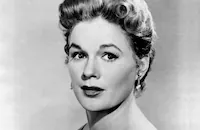
Jean Hagen

Rosemary De Camp
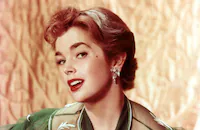
Dawn Addams
Jonathan Cott
Celia Lovsky

Gordon Gebert
Harry Antrim
Katharine Warren
Mary Lawrence
Herb Vigran
Otto Waldis
John Maxwell
John Jeffery
Richard Hale
Robert Foulk
Bradford Hatton
Wheaton Chambers
Dutch Horton
Bert Davidson
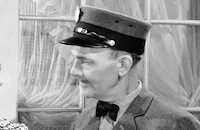
John Butler
Bud Stark
Eileen Christy
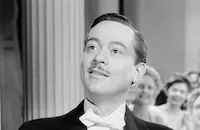
John Eldredge
Matt Moore

Whit Bissell
Frank Mcgrath
Edith Leslie
Barbara Bushman
Mario Siletti
Torben Meyer
Christopher Knopf
Wilton Graff
Julian Upton
John "skins" Miller
Percy Helton
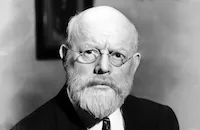
Howard Mitchell
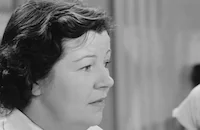
Margaret Bert
Crew
James Basevi
James Brock
Reggie Callow
Carmen Dragon
George Folsey
Cedric Gibbons
Sydney Guilaroff
Edwin H. Knopf
Jay Marchant
Warren Newcombe
Carol Pratt
Douglas Shearer
Alfred L. Spence
Leonard Spigelgass
Karl Tunberg
William Tuttle
Robert Watts
George White
Edwin B. Willis

Videos
Movie Clip



Film Details
Technical Specs

Articles
Night Into Morning
Until his Oscar®-winning role in The Lost Weekend, Milland was hardly the actor one would pick for a searing portrayal of anything, much less a self-loathing alcoholic. In fact, Jose Ferrer had been writer-director Billy Wilder's first choice for that role. Studio executives argued that a more attractive leading man would make the film more palatable to audiences. They forced Wilder to cast Milland, even though the British-born actor was best known until then for romantic comedies. Winning the Oscar® didn't really change that, though Milland at least got a few more shots at heavier roles like his dramatic turn in Night Into Morning. Fed up with the roles Hollywood had to offer, he eventually turned to directing himself in interesting genre films like The Safecracker (1958) and Panic in the Year Zero! (1962). The latter re-teamed him with one of his co-stars from Night Into Morning, Jean Hagen.
Had Night Into Morning been a bigger hit, it might have changed the nation's future. Milland's leading lady in the film was an MGM contract player hungry for big-screen stardom, Nancy Davis. She came to the film from one of the studio's biggest flops ever, The Next Voice You Hear (1950), in which she played a pregnant woman whose husband (James Whitmore) picks up messages from God on his radio. Night Into Morning gave her one of her best dramatic opportunities on screen as a sympathetic college professor who tries to help Milland through his personal crisis. The scene in which she tries to talk him out of committing suicide was a particular triumph. She got the lengthy dramatic scene in one take, an accomplishment that later prompted her to call this her favorite film.
In addition to delivering a fine performance on her own, she also helped co-star John Hodiak turn in an uncharacteristically light scene. Hodiak was a very serious actor, rarely scoring in comedies. For one scene in Night Into Morning, he had to come on laughing as he and Davis climbed down a staircase on the college location. He had no trouble the first few times, but as technical difficulties required more takes - and the stairs seemed to grow steeper - his laugh grew more and more forced. Finally, director Fletcher Markle took Davis aside and asked her to do something to help Hodiak laugh. The crew set up for one more take, and just before Davis and Hodiak walked into camera range she whispered, "Belly button." Hodiak erupted with laughter, and they finally got the take.
None of this was enough for the studio executives, however. Faced with diminishing box office and competition from television, all the studios were cutting their contract lists. They dropped Davis the following year, just as she was planning her wedding to Ronald Reagan. With film stardom a lost cause, she was in just the right place to devote her considerable energies to supporting her husband's political ambitions.
Producer: Edwin H. Knopf
Director: Fletcher Markle
Screenplay: Leonard Spigelgass, Karl Tunberg
Cinematography: George J. Folsey
Film Editing: Robert Watts, George White
Original Music: Carmen Dragon
Cast: Ray Milland (Philip Ainley), John Hodiak (Tom Lawry), Nancy Davis (Katherine Mead), Lewis Stone (Dr. Horace Snyder), Rosemary DeCamp (Annie Ainley), Jean Hagen (Girl Next Door), Dawn Addams (Dottie Phelps).
BW-86m.
by Frank Miller

Night Into Morning
Quotes
Trivia
In the promotional film Metro-Goldwyn-Mayer Story, The (1950), this film is referred to only under its working title, "People in Love".
Notes
The working titles of the film were People in Love and People We Love. According to a Hollywood Reporter news item, actress Lisa Ferraday was to have a "leading" role, but she was not in the released film. Another Hollywood Reporter news item noted that a production crew went to San Francisco for two days to film portions of the picture, but the item probably referred to the actual location shooting that was done on the campus of the University of California in nearby Berkeley, CA.Night Into Morning marked the motion picture debut of English actress Dawn Addams (1930-1985).














